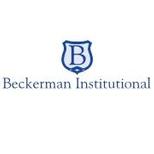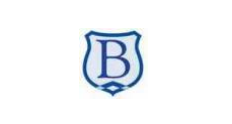 Author: Beckerman Institutional
Author: Beckerman Institutional
Covestor model: Flexible Value
This past quarter was the worst quarter since 2008. In our model, we remained invested in equities because, despite the economic headwinds, we believe that stocks have remained undervalued relative to their fundamentals. We believe that there are significant discounts to be found in the technology, healthcare, and financial sectors.
There are several financial institutions trading at significant discounts to their book values. Investors seem to be bracing for another 2008-style financial crisis, which theoretically would stem from continued spread of the European debt crisis. The banks today, however, are far more conservative than they were during 2008. They have lower leverage ratios and higher cash balances than during the preceding decade. They also went through a cleansing period during the 2008 crisis in which they wrote down a large amount of bad loans. So it is likely that the majority of that is already in the rear view mirror. That said, the banks are now a whipping board for politicians and angry protestors.
We are currently seeing the swarm of people continuing to “Occupy Wall Street.” I have seen many politicians and business leaders point their fingers at this group as being misguided and lacking any focus. While it may be easy to write this group off, there are some topics in which the American people have a right to be angry about. The banking system was engaged in overly risky practices in the years prior to the financial crisis and needed to be bailed out. Our Federal Reserve Chairman, Ben Bernanke, had an appropriate analogy in which he said that if your neighbor smokes in bed, and he is reckless and falls asleep and sets fire to his home, should you put out the fire or let them burn? If you do not put out the fire there is a likely probability that the fire will spread to everyone else’s home in the neighborhood.
Perhaps we should consider the abolition of the Glass-Steagall legislation in 1999 by Graham Leach Bliley, and the effects that it had during the financial crisis. Glass-Steagall was enacted after the Great Depression as part of sweeping legislation to prevent the sort of deep financial crisis, conflicts of interest, and abuses that contributed to the depression. Glass-Steagall forced the traditional banks, which are central to lending and carry out the basic allocation of capital from where it is abundant to where it is scarce, to avoid the more risky practices of investment banking.
Glass-Steagall was repealed in 1999 as part of the Gramm-Leach-Bliley Act, which allowed the large investment banks to engage in speculation with their depositors’ money. One of the arguments at the time was that we needed to provide the opportunity for U.S. banks to grow and compete with many of the multinational European banks on a global basis by providing customers truly comprehensive services.
Of course in retrospect, we have to question the benefits of providing fertile ground for “too big to fail” financial institutions. The banks have already deleveraged significantly over the preceding several years and have become far more focused on risk management. In aggregate, they have also been shedding their more volatile businesses, including proprietary trading operations and hedge funds. There is a proposed Volcker Rule that would restrict much of the speculative activity that brought the financial system to its knees. Also, we recently saw that hedge fund manager Raj Rajaratman at the Galleon Group received an 11 year sentence for insider trading, the longest sentence of its kind. I believe creating sufficient legislation and enforcement against abuses will create a better financial system. If investors feel as though they are on a level playing field in terms of the mitigation of insider trading, stock manipulation, and sufficient risk management policies from our banks, we will go a long way in terms of providing investors a more efficient market.

